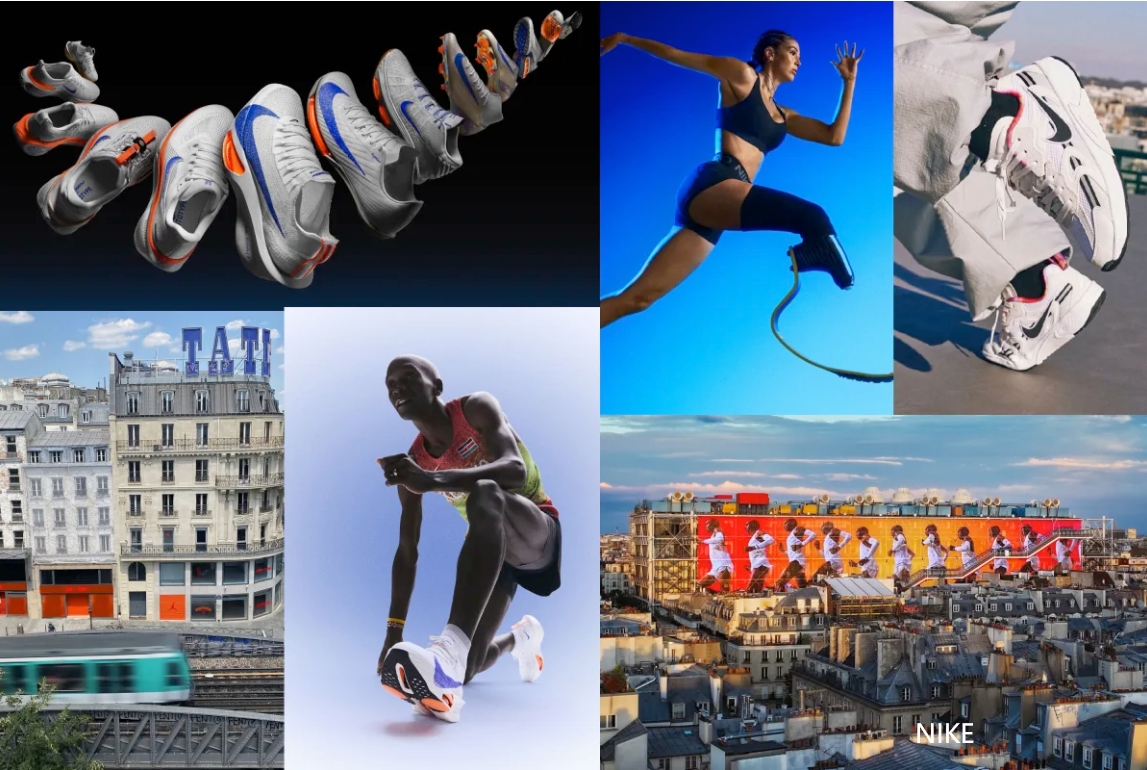Your cart is currently empty!

Nike’s Evolution: From Product Leader to Marketing Powerhouse
The success of Nike’s evolution is also a history of significant strategy shifts in response to market challenges and opportunities. As the iconic leader in the world of sneaker and sportwear, Nike also faces ongoing challenges and uncertainties. The competitive landscape in the sports industry is constantly evolving, with new challenger and changing consumer preferences.
The Mid-1980s Decline
- Reebok’s Rise: Reebok overtook Nike as the leading athletic brand in the mid-1980s, capitalizing on the booming aerobics trend. Nike initially misjudged the aerobic market, leading to stagnant revenue and a loss of market share.
- Harvard Business Review Insights: Phil Wright had a conversation with the Harvard Business Review in 1992, reflects Nike’s shift from product-oriented approach to a much more aggressive marketing-oriented strategy. It emphasized the need for a comprehensive understanding of marketing and consumer behavior, which influenced Nike’s management strategies moving forward.
“When the formulas that got Nike up to $1 billion in sales—being good at innovation and production and being able to sign great athletes—stopped working and we faced a series of problems. For one thing, Reebok came out of nowhere to dominate the aerobics market, which we completely miscalculated.
We were also having management problems at that time because we really hadn’t adjusted to being a big company. And on top of that, we made a disastrous move into casual shoes”.
-Phil Knight
Nile’s Evolution: Product Leader to Marketing Powerhouse
Nike transitioned from merely product innovation to becoming a powerhouse in marketing. The brand foster a strong emotional connection with clients and fans through inspirational messaging, such as the iconic “Just Do It” campaign. Nike started using high-profile endorsements and targeted marketing campaigns to engage consumers effectively. The brand partner with athletes and celebrities, reinforcing its brand presence. Nike’s shift from a product-oriented to a marketing-centric approach not only helped the company reclaim its market position but also established it as a cultural icon. Through strategic insights and innovative marketing, Nike has successfully navigated challenges and maintained a dynamic presence in the athletic industry. Nike surpassed Reebok and Adidas in 1990s.
Nike’s Marketing Innovation:
- Targeted Campaigns: Nike started using high-profile endorsements and targeted marketing campaigns to engage consumers effectively, It partner with athletes and celebrities to reinforce its brand presence.
- Sponsorship and Events: The company invested heavily in sponsorships and athletic events, further embedding itself in the sports community and enhancing its brand visibility.

Nike’s Major Leaders in Branding and Marketing
Branding
- Trevor Edwards: President of NIKE Brand, joined NIKE in 1992. He was Marketing Manager, Strategic Accounts for Foot Locker in 1993, Director of Marketing for the Americas Region in 1995, Director of Marketing for Europe in 1997, Vice President, Marketing for the Europe, Middle East and Africa Region in 1999, and Vice President, U.S. Brand Marketing in 2000. Mr. Edwards was appointed corporate Vice President, Global Brand Management in 2002, Vice President, Global Brand and Category Management in 2006 and President of NIKE Brand in 2013. Prior to NIKE, Mr. Edwards was with the Colgate-Palmolive. Edwards played a pivotal role in Nike’s global marketing strategy and brand management until his departure in 2018. He was known for his focus on consumer engagement and innovative marketing campaigns.
Marketing:
- Dirk-Jan “DJ” van Hameren: DJ joined Nike in 1992 at the company’s European headquarters, and has held key roles in brand marketing, digital commerce, operations and general management. DJ earned a bachelor’s degree in business administration from HU University of Applied Science, Utrecht, and a bachelor’s degree in sports management from Hanze University of Applied Sciences, Groningen. DJ competed as a track cyclist for the Netherlands at the 1992 and 1996 Olympic Games. DJ has led award-winning campaigns, including the “Dream Crazy” campaign that marked the company’s 30th anniversary of Just Do It. Previously, he served as Global VP/GM of Nike Sportswear. Nicole Hubbard Graham took over DJ as the chief marketing officer effective Jan. 2, 2024.
While Nike has navigated the previous setbacks, they have often served as catalysts for change and adaptation. The brand is known for its resilience, implementing strategies to address challenges, maintain consumer trust, and evolve its business practices in response to setbacks.
The latest challenge will drive Nike to evolve even more, compelling the company to adapt in response to the constantly changing market and stakeholder expectations.
Blog
Sports That Tend to Lead to Successful Entrepreneurs
Sports and entrepreneurship share a myriad of similarities—both require discipline, resilience, teamwork, and a relentless drive to succeed. Many successful entrepreneurs have emerged from the world of sports,…
4 min read
Entrepreneur Pathways: Inspiring Examples from NFL Players
The emergence of NBA superstars, such as Stephen Curry and others as successful athlete-entrepreneurs, highlights inspiring entrepreneur pathways within the realm of professional sports. For many NFL players, the professional…
4 min read
The Romantic Marketing Powerhouse: The Taylor Swift Effect on the NFL
Taylor Swift’s romance relationship with travis Kelce is burgeoning her connection to the NFL It is creating a phenomenon that can only be described as the “Taylor Swift…
4 min read
The Rise of NBA Superstars as Successful Athlete Entrepreneurs
Stephen Curry is just one of athlete entrepreneurs rising form NBA superstar. His achievement reflects a rising trend among athletes who are broadening their impact in the realms…
4 min read
Stephen Curry: Basketball Superstar and Leader of Sports Entrepreneurship
Stephen Curry is not only renowned as one of the greatest shooters in basketball history, but he has also made significant strides in the business world, particularly through…
4 min read
NCAA, NAIA, and NJCAA: A Guide to College Sports
There are three major governing bodies oversee college sports in the United States: the NCAA, NAIA, and NJCAA. Each organization caters to different levels of competition and a…
4 min read






